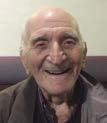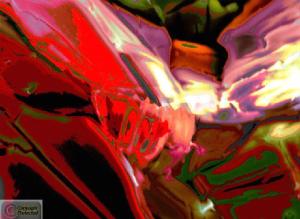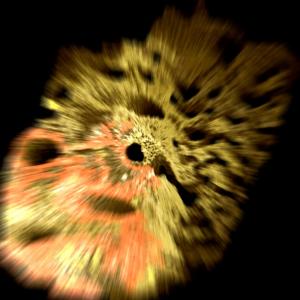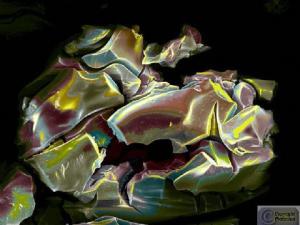What Just Happened?
A Sermon After the Presidential Election 2016
UU Community Church of Santa Monica
Rev. Rebecca Benefiel Bijur
November 13, 2016
Text altered to reflect what was said at the 11am service
On Tuesday morning, I made a promise to my son. I said, Today we are going to elect the first female President in the history of the United States. And that is not what happened. But I stand by my promise. The day we elect a female president was not Tuesday. But that day will come. That day will come.
On Tuesday, about 120 million of us went to cast our votes to close out a long and difficult presidential campaign and election season, and 59,938,290 of us voted for Hillary Clinton, and 59,704,886 of us voted for Donald Trump, who carried the electoral college and will be the next President of the United States. And about 90 million of us didn’t vote.
On Wednesday night, Kathleen and I opened the doors of our history sanctuary to offer refuge to those feeling adrift in the wake of the election. About fifty of you came into that circle to share a tidal wave of pain, rage, despair, and shock. I feel ashamed of my family, you said, because of their political views. I am weeping for the earth, you said, because I am afraid that we will not be able to do what we must for climate justice. I am so scared for my trans community, you said. This is not about big feelings for me, you said, this is about life or death, this is about my body on the line in a country where white people still refuse to believe me when I speak the truth, this is the real America, the country you believed in isn’t the one I live in.
What if I lose my health insurance? What if my students get deported? Why didn’t my work and my voice make a difference in this election?
What do we do now? You asked. Good question.
And as we sat there together, not fixing anything, holding so imperfectly all the stories and voices of those who came in to this place, I heard other stories, too. I know I am a warrior, you said. I’ve been through worse, you said. I think I could do it, you said, I could stand in the face of personal attack and keep my cool and stay focused on my goals and work for my vision of what our country could be. I could serve in elected office, you said. An amazing thing to say, after this election.
I won’t be silent any longer, you said, with tears streaming down your face.
In my ministry I’ve been very influenced by the work of the peacebuilder John Paul Lederach, who comes out of the Mennonite tradition of Chrsitianity which has a theological commitment to nonviolence. Over the past forty years, Lederach has stood in the some of our world’s places of deepest hurt, places of the most
entrenched conflict and violence, alongside those who long for peace and yet don’t dare to hope for an end to the endless fighting that they’ve known. Places like Somalia, Northern Ireland, Colombia, the Basque Country, and nations throughout East and West Africa, as well as cities and towns in the United States. Despite the complexity of conflict he has worked with, Lederach has written that he believes the work of peacebuilding can be summarized as finding and building voice.
Is that what happened on Wednesday night?
Or, is that what happened on Tuesday?
I hesitate to even say that, because my fear and my anger speaks so loudly to me right now, saying that those who have found and built a voice in this election season are the wrong people, that “they” will take the country in a direction it cannot go, backwards toward white supremacy and white nationalism, backwards towards the diminishment of women’s power and bodies, backwards toward an increasingly unequal economy where the vast resources of this wealthy nation are set aside for the 1%, not for the 100%.
That’s my fear and anger talking there. And yes, I could go on. Because those feelings are real. And I want to affirm, as your minister, that all your feelings are real; that there is no right or wrong way to respond to this week’s world events. And that all feelings are ok; but not expressions of those feelings, and not all behaviors are ok.
As the week wore on I heard more stories. I heard many of you find comfort in the way Elizabeth Kubler-Ross described the stages of grief, as you experienced Denial, Anger, Bargaining, Depression, and Acceptance, not in that linear line, but more in waves of feeling that could come and go without warning. Grief is the normal human response to loss, including the loss of a hope or dream, and I’m glad Kubler-Ross’s description held you this week. It’s healthy to grieve and to move through these feelings, as long as you don’t get stuck.
Lederach goes even further, writing not about grief, but about change. How do things change, he writes in a book on conflict transformation. First, he writes, things move forward. Then, things hit a wall and movement stops. Then, things move backwards. Finally, he says, change continues as things collapse. [I love his technical language here, this is really what he writes.] And then he says, you have to remember, change is not linear and always moving in one direction. It’s a circle that goes around and around and around; it’s a spiral rotini that if we are wise and dedicated and determined leads us up toward peace, with many failures and setbacks along the way. That is how we change.
This week I heard some stories that fed my fear and my anger, that said to me that things I hate about my country will never change, and things I love about my country might be taken from me. I heard stories that told me about us versus them, white people versus peole of color, women vesus men, white women versus black women, red versus blue, winners versus losers, with the winner taking all. These were simple stories and easy to digest, and remember, and repeat. It’s black or white. Either or. Yes or no. Good or bad. Fear or Hope.
And then I thought about it. And I felt about it. And I moved about it, this election, and I listened about it, and one of you said, it’s so much more complicated than that. It’s so much more complicated than that.
I think you are right. And I don’t believe this is the kind of problem that can be fixed by working harder, by finding more perfect candidates and getting more people to participate in the democratic process. This isn’t the kind of change that we can make by doing what we’ve always done.
We’re in a new story now. Because this is the kind of change that comes from learning something new and different. It’s the kind of change that comes from balancing limitation with possibility, by judging the distance between the world we dream about and the world we have, and re-learning how to hold and live in between those worlds.
I believe learning to living in the place between possibility and limitation is a deeply spiritual act, a deeply religious and human act.
A few years ago, my colleague Rebecca Parker, a past president of our Unitarian Universalist seminary in Berkeley, California, published a work of liberal theology co-written with John Buehrens, a former president of the Unitarian Universalist Association.
She frames this ultimate question, the question of how to balance possibility and limitation, as one of eschatology, from the Greek eschatos, final, and logos, words, the words of end-times, the words that lend finality and purpose to our lifework.
Most of us are probably familiar with apocalyptic eschatologies, words for end times that call for a final judgment and a great battle, when the saved and the damned will be separated; if we haven’t read the theological texts that speak of such a time, then we’ve probably seen the Hollywood version of such a final disaster, as the lava flows down Wilshire Avenue, the asteroid hits, or the Statue of Liberty falls into the sea.
In contrast to the final judgment, Rebecca Parker proposes a “radically realized eschatology” that vies the ultimate ends of human life with hope and optimism about the shared future of all living beings.
She writes,
This earth—and none other—is a garden of beauty, a place of life. Neglecting it for some other imagined better place will be a self-fulfilling prophecy—it will make earth a wasteland. There is no land promised to any of us other than the land already given, the world already here.
Rather than diminishing our yearning for justice, equality, dignity, reconciliation, and repair, Parker suggests that reorienting ourselves to this world as it truly is can inspire in us what she calls a responsive hope, a hope that is born out of our love of this limited and imperfect world, rather than our idealization of some other perfect place.
I believe this is a moment to claim that responsive hope, a hope born out of seeing ever more clearly the country we have, rather than our idealization of some other country in some other place.
What I saw in the dawn’s early light last Wednesday can lead me to isolation, despair, withholding, or indifference about our country and the work that is mine to do in this time. What you saw in the dawn’s early light last Wednesday could lead you to isolation, despair, withholding, or indifference to our country and the work that is ours to do in this time.
Or it can lead us to double down on a responsive hope that both accepts the world as it is and engages in compassionate care for suffering, injury, and injustice (Rebecca Parker’s words) to move us toward inclusion, standing up for ourselves and our neighbors, opening our doors and our hearts to those who are most vulnerable, afraid, and angry in our communities, and saying, we want to understand.
First, things move forward. Then, things hit a wall and movement stops. Then, things move backwards. Then, things collapse.
And then, things move forward. We move things forward, again.
This morning, as I stand here in the tragic gap between what I see in my country and what I want for all people, I know that a lot of pain went into this election. A lot of injury and hurting hearts are even more visible to me now. There is a lot of suffering and injustice in this country, with deep roots in this economy, in the way we see the enemy and the other, in the way we treat this earth, in the way business as usual is done here in America.
I hope and I pray that we don’t let our suffering and our country’s suffering go to waste. I hope we listen to it and seek to understand it and follow it as a way to find and build voice, to find and build peace, to choose responsive hope, and to stand with one another, because this is what we are here for.
Please rise in body or in spirit and join in singing our closing hymn, There is More Love Somewhere. I’m going to ask you to do something risky now, though, which is instead of singing from your hymnals, I’m asking you to take a chance and listen to the words as I call them out, so that your hands will be free and your eyes can look around to all those here with you today. I know that can feel risky, but it also means
that we can hold hands, which I’m going to ask you to do when we get to the second verse.
And it means I can add a few more verses. We’re going to sing about finding more
love, hope, grief, rage, peace, and joy. I’ll call these out as we go.
Love
Hope
Grief
Rage
Peace
Joy
 As our 2017 Pledge Campaign takes off, we'll explore generosity as a spiritual practice deeply grounded in our UU values. Our YRUU Youth Group will light the chalice and our service will include a special presentation with church member Len Harris on "Generosity for The Children of the World," in which Len will share some of the lessons he's learned about love and generosity in his 93 years on this earth.
As our 2017 Pledge Campaign takes off, we'll explore generosity as a spiritual practice deeply grounded in our UU values. Our YRUU Youth Group will light the chalice and our service will include a special presentation with church member Len Harris on "Generosity for The Children of the World," in which Len will share some of the lessons he's learned about love and generosity in his 93 years on this earth.  Small things are a big deal this October when UU Santa Monica presents “The NanoArt Exhibition,” by NanoArtist Cris Orfescu. We look forward to seeing you at the opening reception Sunday, October 9, from 12 noon to 1:30pm. The exhibit will run through the end of October.
Small things are a big deal this October when UU Santa Monica presents “The NanoArt Exhibition,” by NanoArtist Cris Orfescu. We look forward to seeing you at the opening reception Sunday, October 9, from 12 noon to 1:30pm. The exhibit will run through the end of October. Cris Orfescu, born in Bucharest, Romania, is a degreed scientist and self-taught artist. For more than 30 years he has experimented with an emerging art form, NanoArt, which reflects the transition from science to art through technology. Orfescu has shown his works all over the world, including in Italy, France, Finland, Korea, Ireland, Spain, Germany, Colombia, Greece, Romania, and Israel, in solo and group exhibitions. His art is also commissioned by public institutions and private collectors.
Cris Orfescu, born in Bucharest, Romania, is a degreed scientist and self-taught artist. For more than 30 years he has experimented with an emerging art form, NanoArt, which reflects the transition from science to art through technology. Orfescu has shown his works all over the world, including in Italy, France, Finland, Korea, Ireland, Spain, Germany, Colombia, Greece, Romania, and Israel, in solo and group exhibitions. His art is also commissioned by public institutions and private collectors. Small things are a big deal this October when UU Santa Monica presents The NanoArt Exhibition, by Nano Aritist Chris Orfescu. We look forward to seeing you at the Opening Reception on Sunday, October 9 from 12:00 noon – 1:30pm. The exhibit will run through the end of the month.
Small things are a big deal this October when UU Santa Monica presents The NanoArt Exhibition, by Nano Aritist Chris Orfescu. We look forward to seeing you at the Opening Reception on Sunday, October 9 from 12:00 noon – 1:30pm. The exhibit will run through the end of the month. Cris Orfescu, born in Bucharest, Romania, is a degreed scientist and self-taught artist. For more than 30 years he has experimented with an emerging art form, NanoArt, which reflects the transition from Science to Art through Technology. Orfescu has shown his works all over the world including Italy, France, Finland, Korea, Ireland, Spain, Germany, Colombia, Greece, Romania, Israel, in numerous solo and group exhibitions. His art is also commissioned for public and private collectors.
Cris Orfescu, born in Bucharest, Romania, is a degreed scientist and self-taught artist. For more than 30 years he has experimented with an emerging art form, NanoArt, which reflects the transition from Science to Art through Technology. Orfescu has shown his works all over the world including Italy, France, Finland, Korea, Ireland, Spain, Germany, Colombia, Greece, Romania, Israel, in numerous solo and group exhibitions. His art is also commissioned for public and private collectors. Contact Nancy for more info or weekday appointments at assistant@uusm.org or 310-829-5436 ext 102.
Contact Nancy for more info or weekday appointments at assistant@uusm.org or 310-829-5436 ext 102.